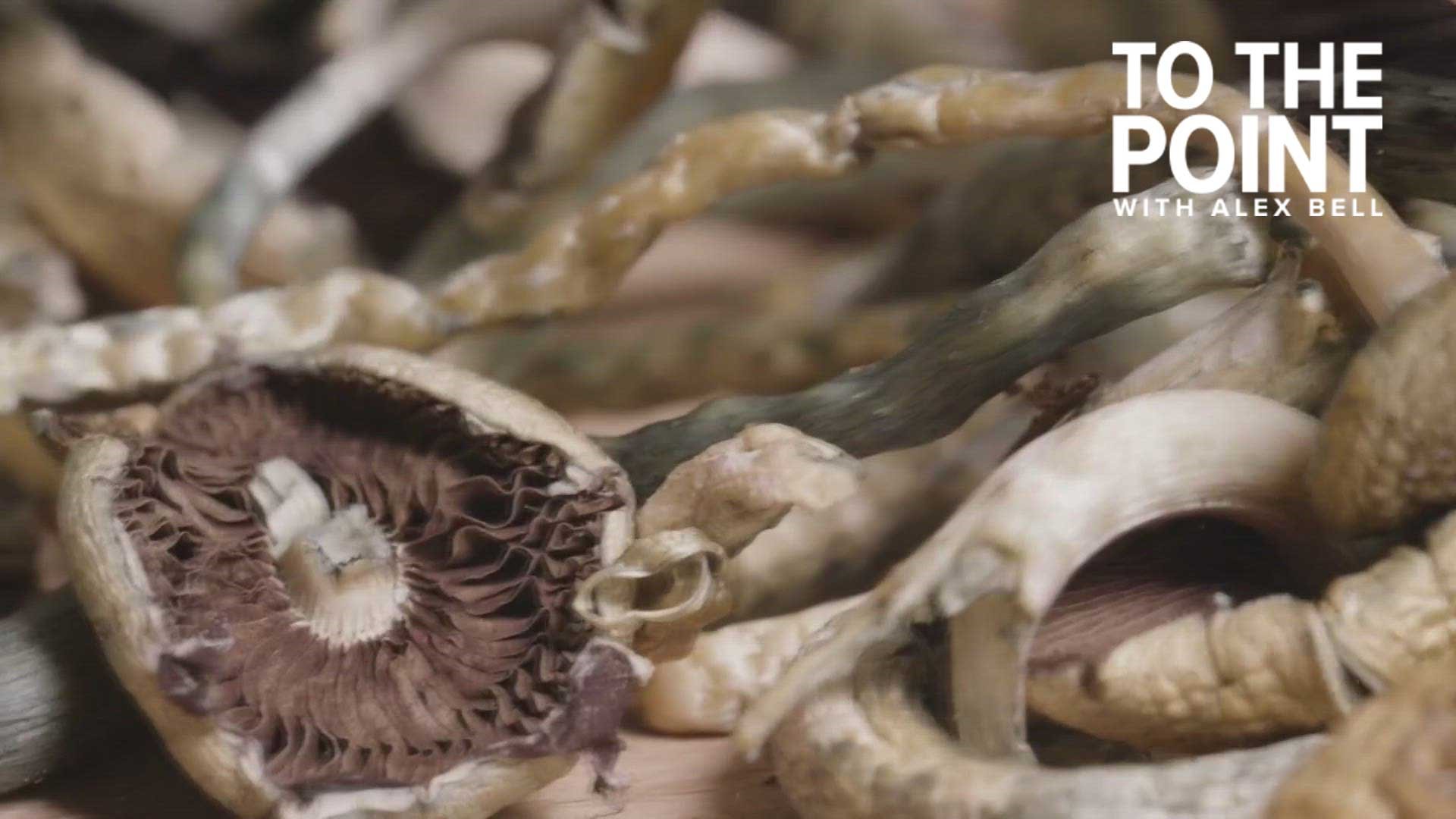SACRAMENTO, Calif. — A bill that would decriminalize certain natural, hallucinogenic drugs like psilocybin – also known as magic mushrooms, or ‘shrooms,’ – is making its way through the legislature.
Authored by Sen. Scott Wiener (D-San Francisco), Senate Bill 58 (SB 58) would decriminalize the personal possession and use of five psychedelic substances - psilocybin, psilocin DMT, mescaline and ibogaine – for adults 21 and older in California.
“It… does not decriminalize the sale of these substances,” Wiener said to the Assembly Health Committee in a July 11 hearing (starting at 5:10:43 here).
He said studies are showing psychedelics – also called hallucinogens - can help in treating mental health and substance use disorders, including PTSD.
“This research started in the 1960s, and – unfortunately - it was completely shut down by the War on Drugs, and we lost about 40 years,” Wiener said. “Over the last decade, the research has started again, and it is extremely promising.”
In June, the U.S. Food and Drug Administration issued its first draft guidance on clinical trials with psychedelic drugs.
At a hearing of the Assembly Appropriations Committee Wednesday morning, members placed this bill—along with more than 100 others – on something called the Suspense File. That’s where the committees put bills with an annual price tag of more than $150,000. In the case of SB 58, it would cost an estimated $362,000 for state health officials to run a workgroup – as the bill would require - tasked with studying and recommending a framework for therapeutic use of hallucinogenic substances, according to an analysis done for the Assembly Appropriations Committee.
So is the bill dead? Not yet. We’ll learn at another hearing in coming weeks whether those suspense file bills continue on in the legislative process or are dead for the session.
Senator Wiener proposed a similar bill in 2021, but it died in the legislative process.
“California should lead in decriminalizing the possession and use of these substances,” Wiener said.
At that earlier July 11 hearing, committee members heard emotional testimony on both sides of the bill, including from U.S. Army veteran Jason Moore-Brown, who is in favor of SB 58.
“I live in Placer County with my beautiful wife and five children. I'm a decorated Army officer and a combat veteran,” Moore-Brown said. “I deployed three times in support of the Global War on Terror from 2000 to 2008, receiving two Bronze Star medals for my actions.”
He returned from war with Post-Traumatic Stress Disorder (PTSD) and recently sought treatment through the guided use of hallucinogens.
“As hard as the last 15 years have been on my family and me, I consider myself fortunate,” Moore-Brown said. “Many of my brothers and sisters have succumbed to the darkness, never having found the therapeutic benefit of the plant medicines this bill will decriminalize.”
Lisa Husdon, a Bay Area mom, spoke against SB 58.
“I have personally experienced the devastating consequences of psilocybin and believe it would be dangerous and irresponsible to allow their unregulated recreational and widespread use,” she said.
Hudson’s 16-year-old son Shayne Rebbetoy died in 2020, after he took magic mushrooms and – while hallucinating – ran off the family’s deck.
“Shane was a vibrant and ambitious young man with a bright future ahead of him, but his experimentation with psychedelic drugs led to his untimely death,” Hudson said.
She’s part of a group called the Coalition for Psychedelic Safety and Education. They’re not totally against the decriminalization of these substances, but they say this bill goes too far, too fast—with not enough safety regulations.
Dr. Stephanie Widmer, a medical toxicologist, says more research on psychedelics is needed.
“There are a handful of states that have begun to decriminalize or have fully decriminalized magic mushrooms, but – again - the research remains limited. We have to proceed with caution,” she said. “There is a difference between medicinal use and recreational use of these substances, and it affects everyone differently. Everyone can have a different experience also depending upon your genetics, depending upon what medications you may take and depending upon the dose that you might ingest.”
She cautions that, for some, psychedelics may trigger severe psychiatric episodes, increased heart rate and blood pressure, nausea, vomiting and/or anxiety.
Dr. Jennifer Mitchell is the associate chief of staff for research at the San Francisco VA Medical Center. She’s also a professor at UCSF in departments of neurology and psychiatry.
She spoke against SB 58, urging caution and more safeguards.
“Psychedelics are complicated compounds that can induce a state of openness and vulnerability, which - with the right guidance and support - can be transformational and curative,” she said. “Without the right guidance and support, however, this vulnerability can be incredibly destructive. It is therefore important that we generate a system of psychedelic access that will enable appropriate containment and oversight.”
Magic mushrooms are illegal in most of the country. Colorado and Oregon and currently the only states that have full decriminalized their use, while four other states – including California – have decriminalized the drug within certain cities. Municipalities here include Oakland and Santa Cruz.
“Austria, Brazil, Nepal, Netherlands, all have legalized. Chile, Croatia, Czech Republic, Italy have decriminalized,” said SB 58 co-author, Assemblymember Josh Lowenthal (D-Long Beach).
A study published last month by the UC Berkeley Center for the Science of Psychedelics found — 61% of registered voters in the U.S. support legalizing regulated therapeutic access to psychedelics. Almost half (49%) support removing criminal penalties for personal use and possession, which is what this bill would do.
Earlier this year, UC Davis launched an Institute for Psychedelics and Neurotherapeutics.
WATCH ALSO:



















